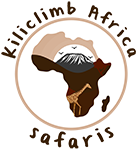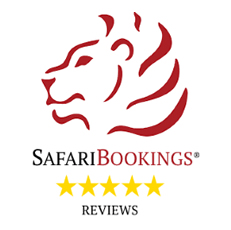Climbing FAQs
ANSWERS TO FREQUENTLY ASKED QUESTIONS…
It is possible to climb Mount Kilimanjaro throughout the year, however January, February and September are the best months, while June, July, August, October and December are also good.
Not at all. Any person in good physical condition can climb and reach the summit. You should be able to run for half an hour or more without feeling short of breath. No one with a sore throat, cold or breathing problems should go above 9,843 feet. People with heart or lung problems should not attempt trekking the mountain without consulting their doctor. Being in the right mental state is important. Do not push yourself to go if your body is exhausted, or if you have extreme mountain sickness or more serious symptoms.
Yes, both our Kilimanjaro and Safari{Journey} prices include park fees and all other applicable fees and taxes.
Yes, we include a free Nairobi-Arusha-Nairobi bus shuttle transfer for those arriving/departing from Nairobi.
Please be advised that there are two daily bus shuttle transfers between Nairobi and Arusha, leaving from either place at 08:00 and 14:00, arriving to the other destination at 12:30 and 18:30 respectively. We can pick you up from Nairobi’s Jommo Kenyatta International airport and from most hotels located in or near Nairobi City center. You will need to be ready at least half an hour before the scheduled times.
Please be advised that the most convenient airport will be Kilimanjaro International Airport (JRO).
The minimum age limit set by the National Park Authorities for trekking to Uhuru Peak is 10 years of age.
Equatorial to arctic conditions are present on Kilimanjaro depending on the altitude. The range begins on the warm, dry plains with average temperatures of 86 F, then ascends through a wide belt of wet tropical forest and zones with generally decreasing temperatures and rainfall, to the summit where there is permanent ice and below freezing temperatures. The temperature at the top of the mountain gets as low as -13 F.
Climbing through the Marangu route, one can reach the summit in 5 or 6 days, including a day and a half of descending. On the Machame, Lemosho, and other routes it is normal to reach the summit in 6 or 7 days including a day and a half of descending.
You need to have the following items for your climb:
Boots, thermal underwear, warm clothes – top and pants, water/windproof pants and shell, socks (at least six pairs – to be changed at least once on the way up), winter hat/balaclava (cover head and ears), water bottle, gators (for wind and mud), gloves (water/wind proof), neck warmer or scarf, sunglasses, flash lights and batteries, walking stick, sleeping tent (for all other routes other than Marangu), sleeping bag and rain wear.
Please be advised that Good Earth provides sleeping tents and mattresses on our climbs.
Yes, excess baggage can be left with us or at the hotel where it will be secure. Valuable items including cash should be specified.
Oxygen in the air decreases as you ascend causing shortness of breath during exertion, along with increased ventilation and heart rate. To acclimatize/adapt to the altitude, pace your self by ascending slowly, avoiding exertion, and breathing regularly and deeply.
Yes. However, only the Marangu route has a reliable, properly equipped rescue team. Rescue services on other routes are done by contacting the Park Headquarters which quickly sends a rescue team. The mountain rescue fees cover rescue services from the top to the base of the mountain. We recommend the flying doctor service membership (a $50 value) to cover a flight from the base of the mountain to your hospital.
Accommodation for the climbing package is at a mid-class hotel that includes rooms with ensuite bathrooms, mosquitoes nets, a bar and a restaurant. It is located in a quiet neighborhood. For those who prefer something more luxurious, we can upgrade this to a five star hotel for an additional charge.
The Marangu route offers accommodation in dormitory style huts with beds and mattresses. For all other routes accommodation will be based on camping in established campsites. Since there are a very limited number of climbers allowed on the Marangu route at any given time, it is necessary to book your spot well in advance.
Our typical food on the mountain include:
- Breakfast: We normally provides coffee, tea, hot chocolate, Hot Milo,Thrilled Hot powder milk, oats/ porridge, fruits, fruit juice, scrambled eggs/omelet, pancakes,sausage, toast, margarine, honey. Jam, Peanut butter and many more according to dirties Restriction .
- Lunch: So here it depends if you will have a hot lunch then this is what you will be served hot soup with either bread or pancake, chips,orpasta,or brown rice and fruits will be provided as well,but if the day that you will discuss and agree with your guide to have a packed lunch then we pack stuff likesandwiches, chicken, biscuits, pancakes with honey or jam, and fruits.
- Dinner: soup, cooked meals (these include chicken/beef with rice, sliced fresh carrots and green beans, mashed potatoes), salads, fruits, and fruit juice, and a variety of hot drinks.
Absolutely Yes! Our skilled cooks are happy to accommodate your dietary restrictions and/or allergies (such as Gluten Free, Vegetarian, Vegan, Kosher or Halal). Just let us know your preference at the time of booking.
Our cooks prepare food for you. They will also boil, and filter, and refill your empty water bottles for you.
All our meals are prepared on portable kerosene and gas stoves. Our environmental low-impact policy prohibits us from using firewood on the mountain.
We recommend that you drink 4 – 5 liters of fluid each day, sipping fluids frequently. Water is best, but fruit juices are a good supplement. It is important that you carry your own water bottle at all times as dehydration is a significant issue and staying hydrated is key to your health and safety. The air is very dry above 13,123 feet so avoid panting and try to breathe through your nose. Control sweating by wearing clothing that will wick away moisture and layer your garments. Monitor your urine: output should be at least 1.6 quarts per day and the urine should be clear.
Yes, drinking water and soda can be purchased on the mountain on the Marangu route only although it is much more expensive than in the town of Moshi or Arusha. Good Earth does, however, ensure that there will be enough water available to you on the mountain.
Our climbs take a minimum and maximum number of one and 15 climbers respectively. However, in most cases our average is four climbers with a maximum of 10.
This depends on the number of people in your group. You will have one lead guide, with assistant guides (serving as porters) and porters (including skilled cooks). We guarantee enough porters for your luggage, food, and water.
Unlike most other companies, we do not have luggage limitation on our climbs. We also provide free storage for items that you do not want to bring on the climb.
In the event that one person gets sick and has to stay behind or return, he/she will be accompanied by one of the assistant guides while the other climbers continue.
Unlike most other companies that charge about $100, we provide a free transfer from the mountain to the hotel should a climber return earlier than planned.
For medical advice it is always best to consult your doctor. Please contact the Tanzania embassy in your country for any updated info on minimum requirements to get into Tanzania or Kenya, if any.
Yes, we can. We have good working relationship with a wholesale travel agent who can assist with booking international flights at reasonable prices. Let us know so we can assist you further on this.
Our land cost prices include almost everything. The only extra costs you will incur are tips for your guide, cooks and porters, some of the climbing gear and meals that are not listed on your itinerary.
Please see our tipping guideline on the right inserts of this page.
Absolutely! You can even start by talking to some of our staff in the USA and Canada offices who were born and raised in the Tanzania!
Yes! We are a majority owned African company, and are able to help our local African communities. A percentage of your money goes to local projects that we support, including Nambere Primary School and the Comeca Environmental Organization.
We accept Visa and Master Card for your deposit only. The balance is due 90 days prior to departure and is payable by check/cheque, wire transfer or money order.
There is a required deposit of at least $300/person for Kilimanjaro trekking bookings.
The following cancellation fees applies to all our tours:
- Cancellations received more than 90 days prior to departure: $500 per person per tour or extension
- 89 – 60 days, 20% of the tour price
- 59 – 30 days, 50% of tour price
- 29 – 15 days, 75% of tour price
- 14 days or less, 100% of tour price
In the unlikely event that we must cancel a trip due to some reasons beyond our control, you will receive a full refund. Having said that we have never cancelled a trip!
Absolutely not! Once we receive your deposit, both price and departure are guarantee.










